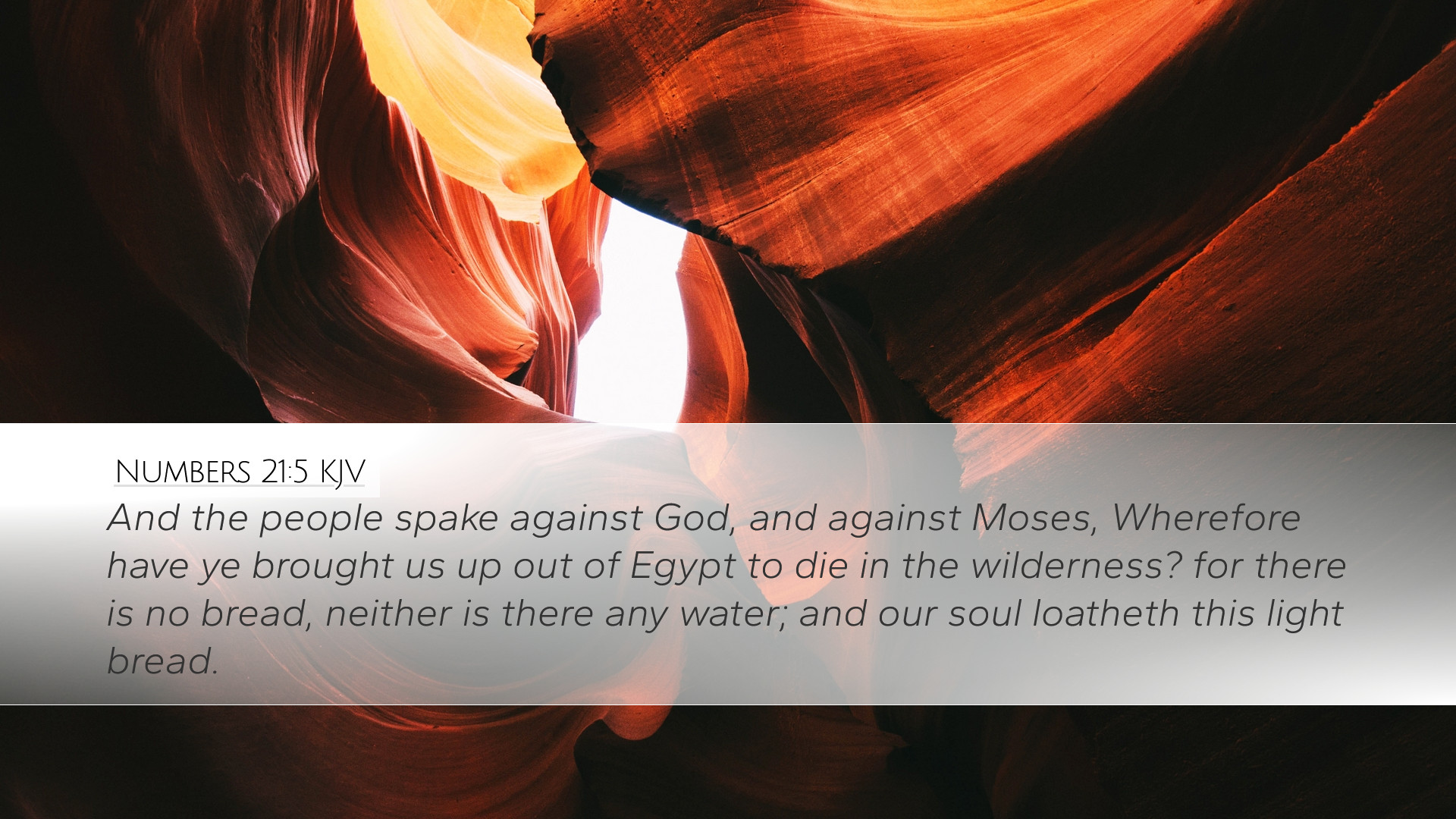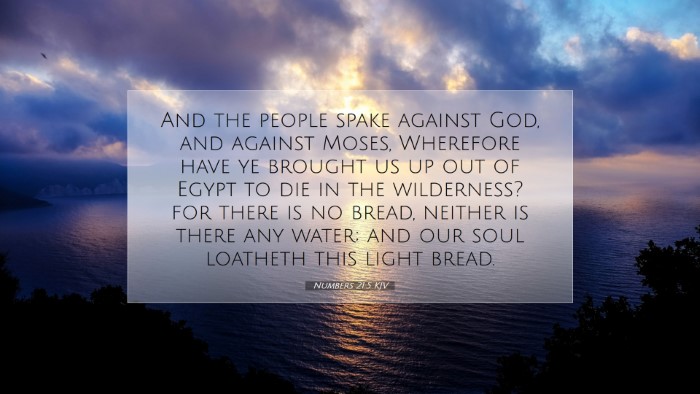Bible Commentary on Numbers 21:5
Numbers 21:5 states, "And the people spake against God, and against Moses, Wherefore have you brought us up out of Egypt to die in the wilderness? for there is no bread, neither is there any water; and our soul loatheth this light bread."
Contextual Overview
The Israelites’ journey through the wilderness is marked by trials and challenges. Numbers 21 is part of a narrative illustrating the ongoing discontent of the Israelites during their exodus from Egypt, striving towards the Promised Land. This particular verse encapsulates their complaints against both God and Moses, reflecting deep-seated dissatisfaction and a lack of faith.
Insights from Matthew Henry
Matthew Henry notes that the Israelites' discontent arises in response to hardships they perceive in the wilderness journey. He emphasizes the following points:
- Grumbling Against God: The Israelites direct their complaints against God and Moses, questioning the motives behind their journey. This signifies a grave spiritual error as it indicates a lack of trust in God’s plan.
- Human Nature’s Complaining Attitude: Henry reflects on how deprived human nature is prone to grumbling, especially in testing circumstances. The phrase "light bread" signifies their contempt for the manna provided by God, showcasing both ingratitude and arrogance.
Insights from Albert Barnes
Albert Barnes in his commentary provides further insights into the spiritual implications of this verse:
- The Significance of Manna: Barnes elaborates on the divine provision of manna, which was a miraculous sustenance provided by God. The people’s disdain for it reveals a lack of appreciation for God's provisions.
- Discontent Leads to Sin: He warns that discontent can lead to sin, and in this case, the people’s murmuring demonstrates a failure to recognize God’s blessings in their lives. Their complaints stem from a misunderstanding of God's purpose in their suffering.
Insights from Adam Clarke
Adam Clarke provides a detailed examination of the text, particularly focusing on the implications of the Israelites’ mindset:
- Historical Discontent: Clarke suggests that the Israelites’ complaints are rooted in historical memory; they idealize their past in Egypt, forgetting the hardships they suffered there. This distorted view leads to their present complaints.
- Ignoring God’s Faithfulness: Clarke also points out that the Israelites ignore the fact that God has been continually faithful in providing for their needs. Their rejection of God's provisions highlights a spiritual blindness.
Theological Reflections
From these commentaries, several theological reflections emerge:
- Trust in Divine Provision: The complaints of the Israelites remind believers today of the importance of trusting in God's provision, even when circumstances appear dire.
- The Danger of Complaining: Complaining can lead to further rebellion against God. It risks distorting one’s understanding of God’s character—seeing Him as unkind or neglectful.
- Human Nature and Spiritual Growth: The text illustrates the struggle between human nature and the need for spiritual growth. It calls believers to reflect on their own attitudes in times of trial.
Application for Modern Believers
This passage provides critical insight for pastors, students, and scholars:
- Reflection on Personal Attitudes: Individuals are encouraged to reflect on their responses to trials. Are they filled with trust or do they lean into discontent?
- Importance of Worldview: This passage encourages believers to shape their worldview in light of God’s faithfulness and generosity rather than their immediate circumstances.
- Leadership Lessons: For pastors and leaders, this passage serves as a reminder of the burden of leadership. Leaders often face complaints, and this calls for patience and a continual focus on God’s provision.
Conclusion
In conclusion, Numbers 21:5 serves as a rich text for reflection and application. The commentary from Matthew Henry, Albert Barnes, and Adam Clarke collectively urge readers to confront the human inclination to complain and to instead cultivate an attitude of gratitude and trust in God’s unfailing provision.


